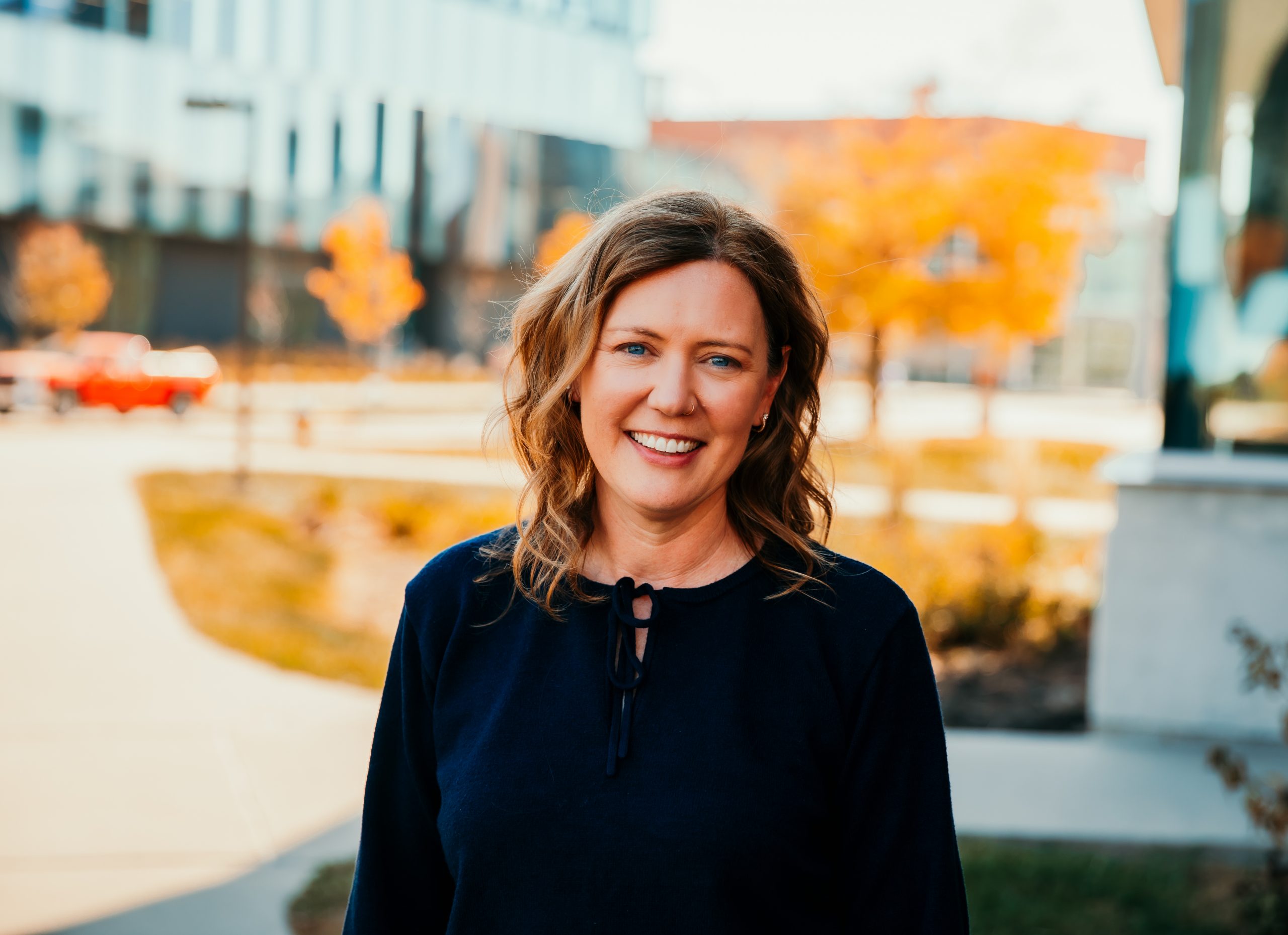ABE welcomes new faculty member: Sara McMillan
Author: Sarah Hays
Author: Sarah Hays

The Department of Agricultural and Biosystems Engineering (ABE) is continuing to enhance the environment with research, teaching and extension work brought to the table by new ABE professor Sara McMillan.
McMillan has been working to solve water quality problems in many different ways. Some of those ways include restoring stream and wetland ecosystems, understanding the effects of conservation agriculture, and incorporating interactions between human and natural systems. Before McMillan began her position in ABE, she worked with stormwater practices and other urban systems as a professor at the University of North Carolina at Charlotte, and on urban and rural systems in the US and internationally, including floodplains, streams, and urban farms as a professor at Purdue University.
With a background in environmental engineering and a Ph.D. in environmental science and ecology, McMillan describes herself as an ecological engineer whose background has given her the tools to support practices from agricultural conservation to stream restoration. As a biogeochemist, McMillan dove into how microbes interact with the earth and the natural environment throughout her research and discovered that although water quality issues are different worldwide, the fundamental pieces that drive function remain the same.
“Going from working on stormwater practices, streams, and a little bit of agriculture in the southeast to working in Indiana on big rivers, large floodplains, and agriculture, that scale is different, but the underlying mechanisms are really the same,” McMillan said. “I was able to make some transitions along the way that I think allowed me to dig deeper into the question: What are the fundamental processes at the heart of this system? What do they have in common and how can we find solutions that are transferrable?”
Through McMillan’s research and teaching, she looks at water quality issues through a fundamental lens.
“A lot of my work in Indiana was about looking at multiple intersections of land use, climate, human impacts on water quality,” McMillan said. “Water quality is a huge issue for Iowa too, a huge issue for the Midwest. Mostly we think about nutrient enrichment, something I have worked on for a long time. I’m looking forward to the challenges ahead where I can build on foundational knowledge and dig deeper into the potential nature-based solutions that work here, to find a better understanding of what is driving outcomes.”
At Iowa State University, a land-grant institution valuing extension and community-based research, McMillan is excited to be partnering with community members looking to better Iowa’s environment.
“Here at Iowa State, we have a strong relationship with extension,” McMillan said. “Here, my work doesn’t just turn the hearts and minds of academia, but it also goes to organizations that are looking at how to restore a wetland, communities working on restoration projects, and can help make decisions on the design of their projects. I am really looking forward to partnering with those on the ground doing the work.”
When teaching, McMillan brings her passion for restoration and her blended background of ecology and engineering to her classes. McMillan is teaching multiple classes, one of which is ABE 431, Design and Evaluation of Soil and Water Conservation Systems. In class, McMillan covers topics such as the ways nature supports healthy soil, improves water quality, or minimizes erosion, and has students design conservation practices and communicate their approaches through real-world style memos to “clients.”
“I am really excited about continuing my work at the intersection between engineering and ecology, and connecting it to teaching and growing our next generation of people who are going to be doing this work,” McMillan said. “As we create curriculum, innovate in the classroom and help students expand what they think is possible, I am excited to discover how we can continue supporting students as changemakers and light that fire.”